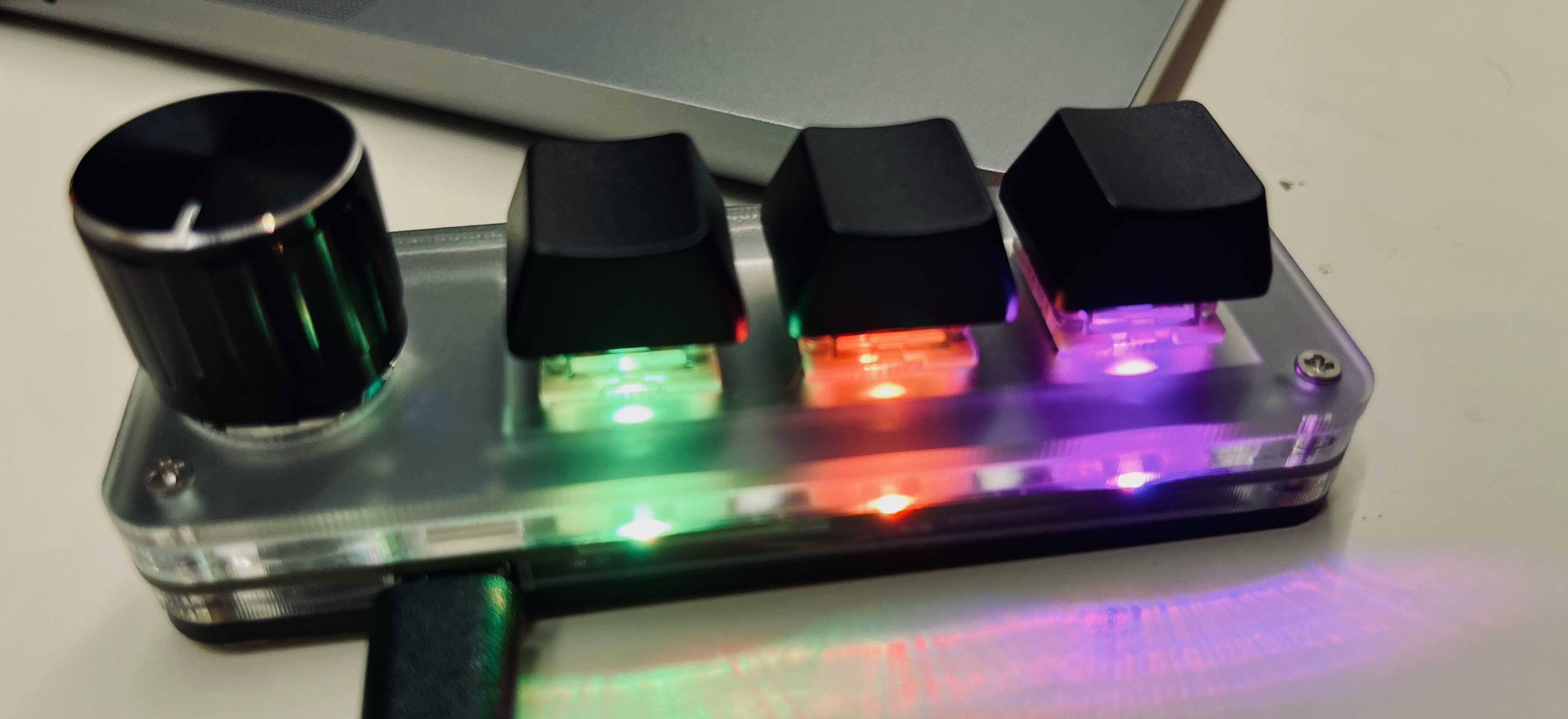There are 3 key + rotary encoder knob macro pad / mini keyboards that are commonly available on sites like AliExpress and Ebay. They show up in lsusb with USB id of 1189:8890, use a WCH CH552G chip inside, and have a layered acrylic construction. However, the Windows software supplied by the people selling these things is invariably awful - Windows only, has viruses reported on VirusTotal, many slightly differing versions, language barriers, doesn't support all possible USB HID HUT keycodes, etc etc. This is a shame because the devices themselves are reasonably good.
I went to the effort of sniffing the USB traffic (with busdog) while using the programming software in a Windows VM, and then writing a basic libusb program to send the same data patterns. This solved my immediate need to have the mini keyboard send F13-F18, which weren't available in the Windows software, but are distinct from all other keys used on my system, so I can freely and easily bind them in software. I tried using many incantations of hidraw to send the data, but could never get it to work, so switched to libusb instead. I haven't bothered trying to sniff multi-key-sequence setting (and probably never will).
To use, customise the button-setting code at the end of main() to set the buttons to keys of your taste, then recompile (make) and run with elevated privileges (sudo ./hid-minikb-libusb). Make sure you have a C devel environment and the libusb dev package installed on your system (eg. sudo apt-get install build-essential libusb-1.0-0-dev on Ubuntu/Debian).
The stock firmware isn't that great, eg. it doesn't make much good use of the LEDs. ch552g_mini_keyboard looks like a much better alternative firmware, and regardless has great info about the build of these devices. Everything else I found seems to be for custom/homebrew macropads that, while they use the CH55X, are similar-but-different (eg. different pinouts) to these mass produced things.
